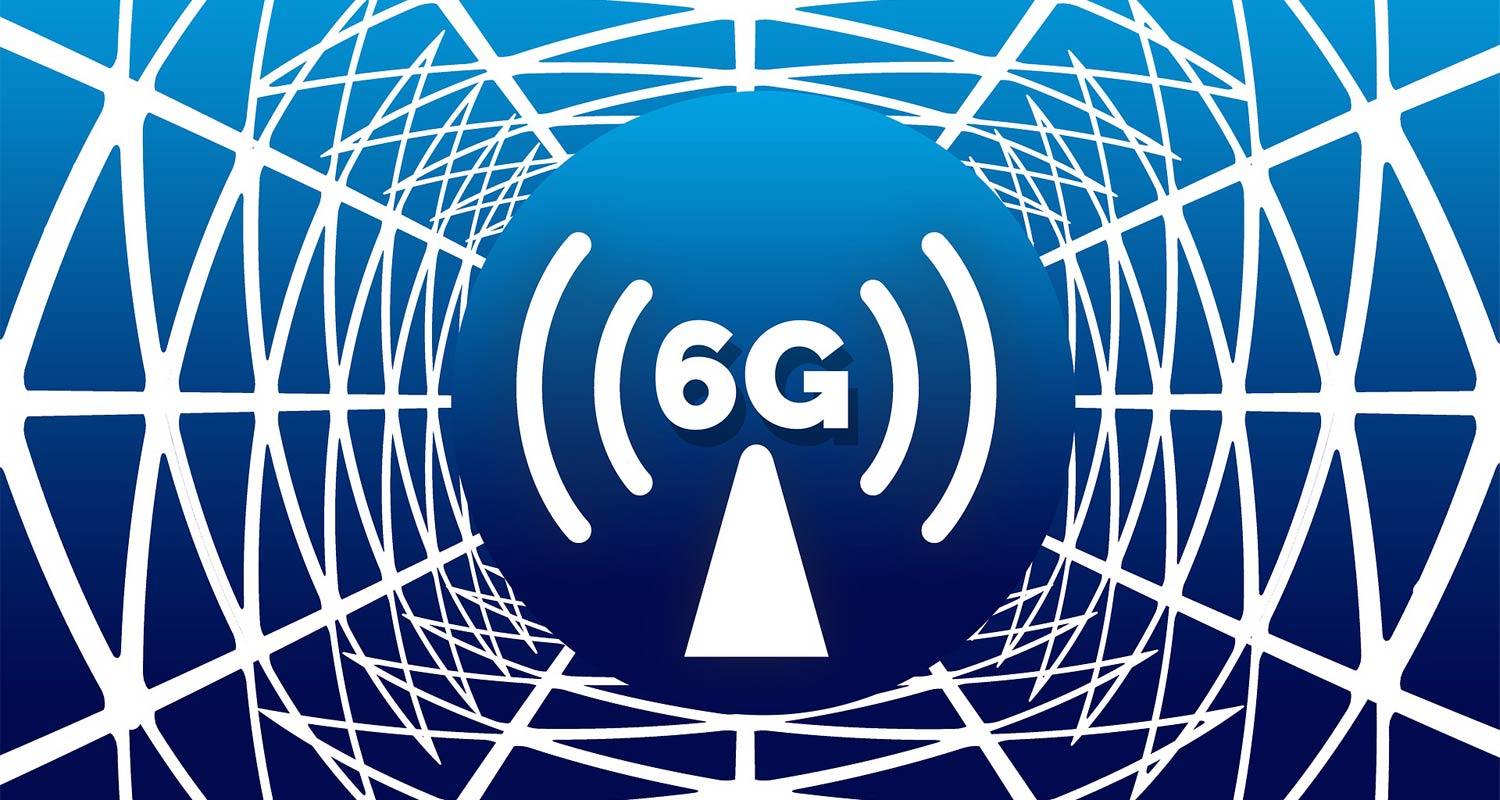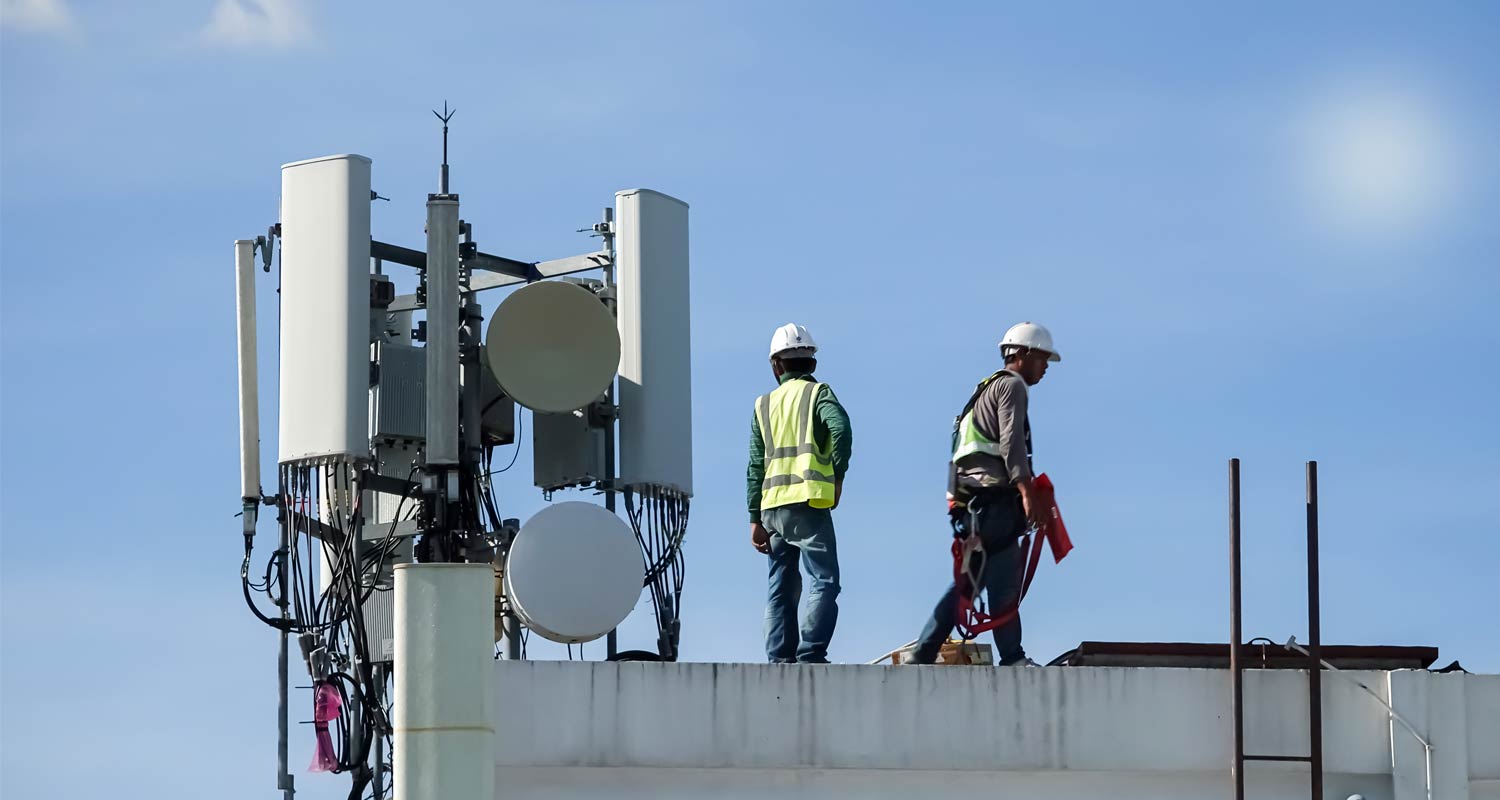 Most South Africans haven’t yet experienced 5G technology, but the next generation of wireless services, 6G, is already in active development.
Most South Africans haven’t yet experienced 5G technology, but the next generation of wireless services, 6G, is already in active development.
Nokia Bell Labs, Ericsson and Huawei Technologies all expect that the era of 6G will deliver virtual reality (including the metaverse), almost instantaneous data transfer, and advancements in the internet of things, artificial intelligence and robotics, facilitated by a lightning-fast and efficient network.
They say the technology is poised to unlock the full potential of the internet and propel humanity into a new technological era. But what are 6G networks — and when will they be available commercially?
A 6G network represents the next generation of wireless communication technology designed for mobile systems, building on the foundation laid by the previous generations, especially 5G. Operating on new and unused radio frequencies, 6G networks integrate advanced technologies with an emphasis on AI at its core.
A principal objective of 6G is to provide even faster and more reliable connections — but that’s just the start. It will utilise higher frequencies and offer significantly greater throughput. The promise is that more devices can connect simultaneously without compromising speed or quality, with the latency – or network round-trip time – dramatically reduced. The goal is to achieve communication with a delay as minimal as just 0.1 milliseconds, compared to the best-case one millisecond delay that 5G can provide.
Functionality of 6G networks
A key aspect of 6G involves the use of ultra-high frequencies, commonly referred to as millimetre waves in the radio spectrum. These high frequencies have the capacity to carry more data compared to those in 5G networks, some of which already use portions of the mmWave bands.
Moreover, there is a possibility that 6G will push the boundaries of the radio spectrum even further, potentially reaching extremely high frequency levels of 300GHz, and possibly even into the terahertz range. This will facilitate much faster speeds, but only over very short distances.
The implications of 6G extend beyond mere improvements in wireless communication. The technology has the potential to revolutionise public safety and the protection of critical assets by detecting threats or enabling real-time health monitoring and improving facial recognition technology. It could also contribute to air quality measurements or help with monitoring for gas and other toxins in the air.
6G vs older technologies
Each generation of wireless cellular technology — 3G, 4G, 5G – has brought about improvements in bandwidth speeds and network capacity.
3G networks primarily facilitated voice calls and text messages, with some basic internet access. 4G (also known as LTE) marked a significant leap forward in terms of speed and capacity. With peak speeds of around 100Mbit/s at launch, 4G enabled faster downloads, smooth streaming of high-definition videos and the advent of true wireless broadband.
Read: Wi-Fi is about to get a whole lot smarter
The more recent move to 5G represented a paradigm shift, with a focus on connecting the internet of things and industrial automation systems. 5G is also exceptionally fast – up to 100 times faster than 4G. It overcame challenges faced by 4G in crowded locations and aims to connect a diverse range of devices, from smartphones and tablets to smart home appliances and industrial equipment.
 6G is expected to be much faster still, with claims of speeds potentially reaching 1Tbit/s, or 1 000Gbit/s. This exceptional speed promises seamless streaming, lightning-fast downloads and real-time data transfers. Going beyond the traditional wired network setup, 6G is expected to offer wider network coverage and connectivity in more areas, including remote and rural locations.
6G is expected to be much faster still, with claims of speeds potentially reaching 1Tbit/s, or 1 000Gbit/s. This exceptional speed promises seamless streaming, lightning-fast downloads and real-time data transfers. Going beyond the traditional wired network setup, 6G is expected to offer wider network coverage and connectivity in more areas, including remote and rural locations.
As the number of connected devices continues to expand, 6G is expected to support 10 times more devices per square kilometre than 5G. This is particularly significant for IoT applications, where the proliferation of interconnected devices is a defining characteristic.
Vision for 6G
The claim of reaching speeds of 1Tbit/s signifies a paradigm shift in our understanding of connectivity. Users could potentially download 142 hours of high-quality video from Netflix in just one second!
One of the most highly anticipated developments in the 6G era is the creation of the metaverse, a fully integrated virtual world until recently championed, but now somewhat de-emphasised, by Meta Platforms and its CEO, Mark Zuckerberg. Current technologies, including 5G, have limitations when it comes to delivering real-time, personalised 3D experiences. 6G, with its enhanced speed and capacity, is poised to overcome these problems, paving the way for the creation of immersive, persistent virtual environments.
Tech giants are expected to use 6G to build virtual worlds where users can interact and explore in ways previously unimaginable. The metaverse, powered by 6G, holds the potential to redefine social interactions, entertainment and even work. Users may find themselves transitioning between physical and virtual worlds, experiencing a level of immersion that was once confined to the realms of science fiction.
So, when is 6G coming? According to the International Telecommunication Union (ITU), sixth-generation radio interface technologies – grouped under the name IMT-2030 – will be approved by the end of the decade.
The next phase of development of the standards gets underway this year and will run through to 2027. This phase will see the “definition of relevant requirements and evaluation criteria for potential radio interface technologies”.
“The ITU’s Radiocommunication Sector (ITU-R) will now focus on defining technical requirements, the submission process and the evaluation criteria for potential 6G radio interface technologies,” the ITU said in a statement in December. All previous mobile generations – analogue cellular (1G), digital cellular (2G), IMT ‑ 2000 (3G), IMT‑ Advanced (4G), and IMT ‑ 2020 (5G) – were standardised through the ITU.
Read: Wi-Fi 7 is here – just how fast is it?
For the next phase of 6G development, companies and industry associations will submit proposals for the IMT-2030 Radio Interface Technology for ITU-R consideration in early 2027. These submissions will then be evaluated against the agreed minimum requirements prepared by the ITU’s expert group on IMT systems, with the prospect of getting a final set of 6G technology standards approved by 2030, the organisation said.
- TechCentral drew extensively on research by Huawei Technologies, Nokia Bell Labs and Ericsson in compiling this article

